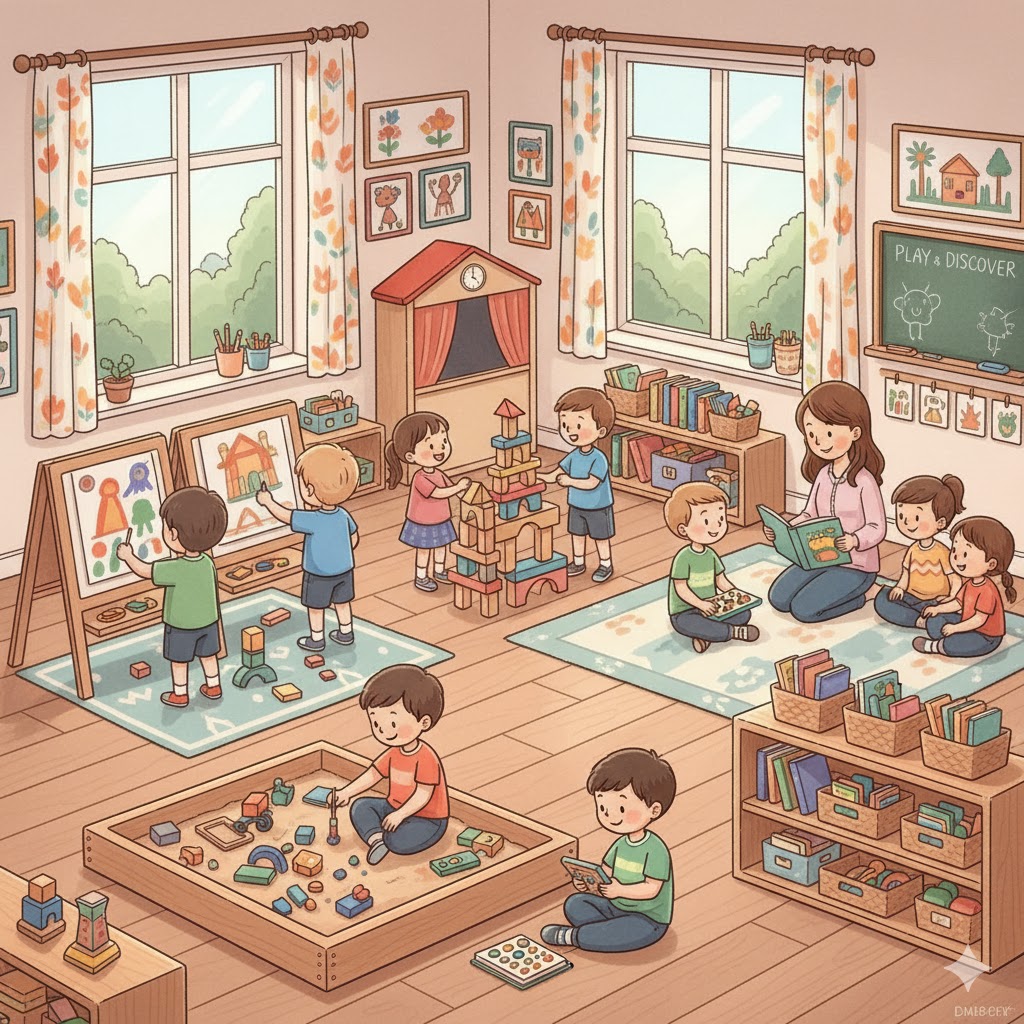Homeschooling Children Under 7: A Play-Based Approach

Homeschooling children under the age of 7 offers a chance to foster creativity, curiosity, and essential life skills without the pressure of formal academics.
At this age, children thrive in an environment rich in play, exploration, and nurturing relationships.
Education for under 7s should be less about formal lessons and more about fostering a love of learning by nurturing a child’s natural curiosity. Here’s a detailed guide to homeschooling young children in a way that’s both effective and enjoyable.
1. The Case for Delaying Formal Learning
Children under 7 are in a stage of rapid physical, emotional, and social development. Research shows that early academic instruction can sometimes hinder natural learning processes by placing undue pressure on young children. Instead, the focus should be on:
- Building strong foundations: Emotional resilience, problem-solving skills, and social interaction are a better foundation for later academic success.
- Encouraging intrinsic motivation: When children explore and discover at their own pace, they develop a love for learning that lasts a lifetime.
- Protecting childhood: Early years should be a time of joy, discovery, and connection rather than formal instruction. The time you spend laughing and messing around with your kids at this age is far more important than how many tests they can pass.
2. The Power of Play
Play is a child’s most effective way of learning. It engages their imagination, promotes physical activity, and helps develop social and cognitive skills. Types of play to prioritize include:
Free Play
Allow children to choose and lead their activities: building/making, dressing up, or inventing games. Free play fosters:
- Creativity and innovation.
- Emotional expression and regulation.
- Independent thinking and problem-solving.
Outdoor Play
Spending time outside supports physical health, motor skills, and a connection to nature. Activities could include:
- Exploring parks, forests, or backyards.
- Climbing, running, and jumping.
- Observing wildlife or seasonal changes.
- Bike/scooter riding
- Flying kites
- Ball games
Social Play
Interacting with peers or family members during games encourages collaboration, communication, and empathy. These are much better ways to socialise than being in a classroom all day:
- Group games like hide-and-seek.
- Role-playing scenarios, such as pretending to run a shop.
- Shared projects like building a fort or creating art.
3. Early Learning Through Everyday Life
Rather than formal lessons, incorporate learning into daily activities. Children learn much more from everyday experiences:
- Cooking and baking: Teach basic math by measuring ingredients, science through observing changes, and life skills by working together.
- Gardening: Explore nature and science by planting seeds, observing growth, and caring for plants.
- Household tasks: Encourage responsibility and teamwork by involving children in tidying up, sorting laundry, or organizing their toys.
4. Building Connections
Children under 7 benefit most from close, trusting relationships with their caregivers. A warm and nurturing environment fosters confidence and emotional security, which are essential for learning. Key practices include:
- Reading together: Sharing stories builds language skills, listening, and imagination.
- Talking and listening: Engage in meaningful conversations about their day or interests.
- Modeling behavior: Demonstrate kindness, good character, patience, and curiosity to inspire similar traits.
5. Introducing Gentle Learning Concepts
While formal academics are unnecessary, you can naturally introduce concepts that prepare children for later schooling:
- Numbers: Count objects during play, like toys or snacks, and discuss shapes and patterns.
- Letters: Point out letters on signs, labels, or books, but avoid structured phonics lessons.
- Problem-solving: Encourage critical thinking by asking open-ended questions during activities.
6. Avoiding Common Pitfalls
Many parents feel pressured to begin structured academics early, please don’t give in to societal expectations. Trust in the benefits of a play-based approach. Avoid:
- Forcing formal lessons.
- Comparing your child’s progress to others.
- Overloading schedules with activities or programs.
7. The Joy of Childhood
Homeschooling under 7 allows families to embrace the beauty of early childhood, focusing on what truly matters: exploration, connection, and joy. By nurturing curiosity and independence, you lay the foundation for a lifelong love of learning and a confident, well-rounded individual.
Homeschooling during these formative years isn’t about replicating a classroom at home—it’s about creating an enriching environment where children can thrive at their own pace. Enjoy this unique phase – it goes so quickly – and you will see your child flourish.

Comments